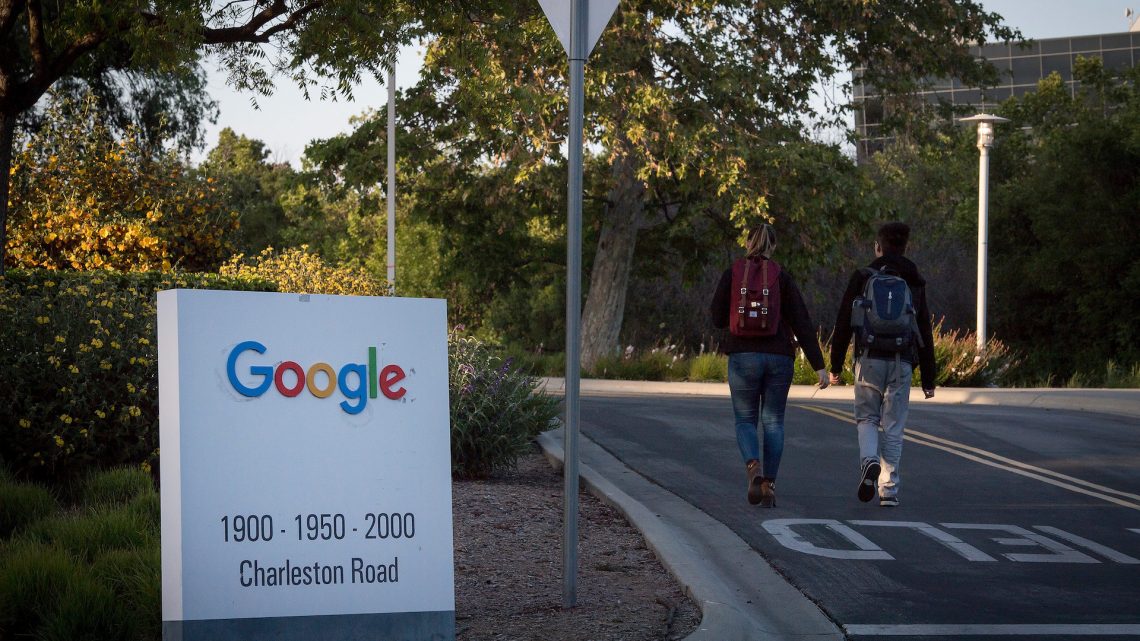
Here’s How Google Sends Advertising Dollars to Fake News Sites
September 23, 2019The conversation around misinformation or hyper-partisan content generally revolves around social platforms like Facebook and Twitter.
But advertising has helped prop up sites like the clickbait-focused Twitchy, the Kremlin-backed RT, and the fake ABC News lookalike abcnews.com.co. More often than not those ads are served by Google.
A study released Sunday by The Global Disinformation Index, a UK nonprofit that rates sites’ trustworthiness, found that 70% of roughly 1,700 disinformation sites it analyzed were getting so-called “programmatic ads” — ads placed automatically — from Google, putting brand names such as Audi and Sprint next to junk content.
“Just like with corruption, a lot of this stuff happens in the dark,” said Craig Fagan, program director at The Global Disinformation Index. “There’s a risk involved for brands by being next to risky content. Disinformation is risky content just like pornography is.”
READ: Mark Zuckerberg just turned himself into a congressional piñata
The researchers scraped ad data from sites identified by third-party fact-checkers, like PolitiFact or Le Monde, as purposely misleading readers. Smaller advertising companies including Criteo, AppNexus, and others served the remaining 30% of the sites.
“It’s not about pointing fingers at Google or any one company,” Fagan said. “It’s about pointing fingers toward change. If we’re able to undo the financial incentive, then we’re able to break the system.”
Digital ads are a $330-billion global business, according to estimates by the research firm eMarketer, and one that’s increasingly dominated by a few major players like Google and Facebook. Google plays a dual role in it both as one of the biggest sellers of online ads on the planet, and also the biggest tech company placing online ads on third-party sites.
READ: Facebook and Twitter aren't even pretending to take the FEC seriously anymore
Ad rates can vary wildly by website. But The Global Disinformation Index has previously estimated that 20,000 disinformation sites it analyzed pull in $235 million a year. Since advertisers are buying audiences across the web through platforms like Google, they may not know exactly where their money is going.
In November 2016, the activist group Sleeping Giants began revealing when major companies like Nissan and Allstate were advertising on Breitbart News.
Similar campaigns have continued since then, including when critics of the nationalist site alerted the spokesman for the City of Toronto Friday that it was inadvertently placing recycling ads on a climate-skeptic news site.
"We are working with the company that places our online ads to ensure this doesn’t happen again,” Toronto Spokesman Brad Ross said in a statement to VICE News, adding that the city buys ads through a third-party marketing firm. “The City thanks the online community for bringing this to our attention so we could address it immediately."
READ: YouTube just banned the racist blog that turned up in DOJ emails
Brands named in the Global Disinformation Index study, including Honda and OfficeMax, which have advertised on the Russian-backed sites RT and Sputnik, did not respond to VICE News’ requests for comment.
Google says it removes billions of ads each year for violating its policies, some of which target certain deceptive content. But it has no rule for “fake news” per se, partly because it sees accuracy as a publisher’s responsibility, and partly because of the difficulty of defining the problem. The lines between hyper-partisan content, state-backed propaganda, and stories concocted purely for financial gain are blurry at best.
The company zeroed in on this grey area to VICE News, disputing The Global Disinformation Index methodology.
“Unfortunately, this report doesn’t explain which sites should be considered disinformation or why, and makes ill informed calculations of publisher revenue,” Google Spokesperson Caroline Klapper-Matos said in a statement. “We have strict policies against misrepresentative content on our advertising platforms and we’ve invested significant resources into elevating quality content from authoritative sources, creating fact check tools and investing millions in a media literacy campaign.”
Cover: Pedestrians walk past signage at Google Inc. headquarters in Mountain View, California, U.S., on Wednesday, April 25, 2018. (Photo: David Paul Morris/Bloomberg via Getty Images)


